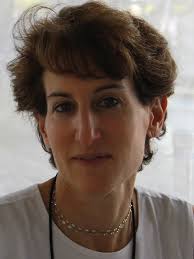Stacy Schiff [1961-0] American    
Rank: 102
Author
Stacy Madeleine Schiff is a Pulitzer Prize-winning American nonfiction author and guest columnist for The New York Times. Courage, History, Imagination, Intelligence, Legal, Marriage, Music, Politics, Power, Travel, Women |  |